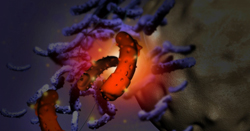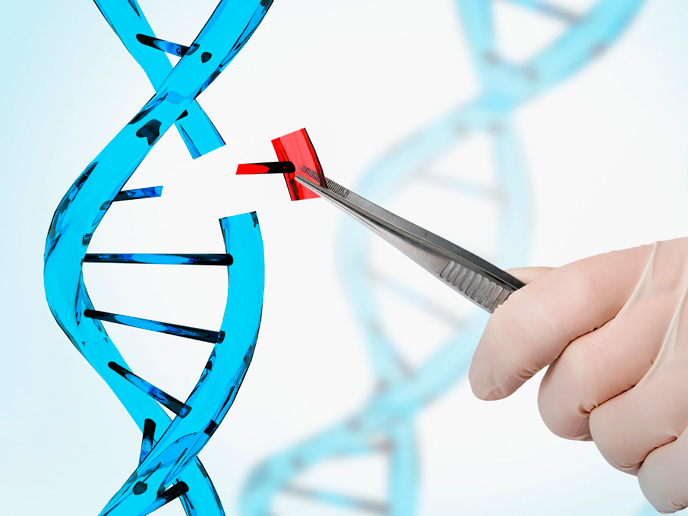Early cancer detection by laser
Early cancer diagnosis today consists of recognition of some of the early signs by the patient themselves or detection from screenings carried out on specific population groups. Current imaging techniques are widely used in diagnostic procedures but they cannot give conclusive evidence of cancer. Today, only a biopsy and the subsequent pathologist interpretation can give a definitive diagnosis of cancer and this is not always sufficient. EU-funded ‘Early detection of cancer using photonic crystal lasers’ (EDOCAL)(opens in new window) project aims to create a breakthrough tool for early cancer detection. Cell in the tumours tend to create additional blood vessels to support their growth. The molecule protoporphyrin (PpIX) is generally present in blood vessels and exhibits red fluorescence when excited with blue light in the 375 - 425 nm range. Cancer cells could be detected by observing the red fluorescence at a matching excitation wavelength. To increase the intensity of the red fluorescence, a porphyrin prodrug (Pp) can be administered either orally or locally to create additional PpIX in the cancerous tissue. By using a tuneable laser system and combination of endogenous fluorescence and exogenous fluorescence (produced by administration of a Pp), it is possible to accurately distinguish between normal and cancerous tissue. During 2 years of the project researchers developed tuneable blue laser system for research purposes. The spectra from 290 sites in the oesophagus of 77 patients were registered and showed that it is possible to detect early cancer with 80 % sensitivity and 81 % specificity. Proof of concept has been achieved for early detection of cancer based on a tuneable blue laser technology. The first patent application has been filed and new filings for the latest results are under way. The project achieved the goal of creation of the device that can be used as the first line cancer detection. This device will reduce the need for biopsies, make the diagnosis more reliable, less dependent on human interpretation and make early cancer detection available to more people.







